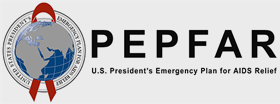As part of this support, the PST provided user-friendly district and facility medicine availability and reporting compliance reports to the managers on a weekly basis so that they could review and do a comparative analysis to practice using the NSC to make important decisions related to medicine availability.
Having strong systems in place is only half the battle, though. The real impact is realized when teams adopt and utilize the systems effectively. Fortunately for uMzinyathi, the district pharmacy manager was up to the challenge. She evaluated her district’s NSC reports to identify facilities with low medicine availability and engaged with them to improve their performance. Furthermore, she consistently reviewed the NSC data and engaged with the PST to undertake a structured root cause analysis with facility managers to provide recommendations to address decreased medicine availability.
In February 2020, the uMzinyathi district recorded an average medicine availability of 86 percent. This number increased significantly over time, jumping from 90 percent on March 27, 2020 to 95.2 percent on December 27, 2020.
Ms. Mazibuko ensured that her staff were adequately trained in medicine supply management (and the use of appropriate standard operating procedures) to promote good practice and adherence to the required standards. Through her regular check-ins, she was able to identify any gaps in skills and address them effectively. She also utilized WhatsApp groups to communicate challenges and express appreciation to managers who were committed to implementing quality improvement plans to minimize medicine stock outs.
While the NSC serves as a valuable source of medicine availability and reporting compliance data, district pharmacy managers, like Ms. Mazibuko, need to be constantly engaging with their facilities to ensure efficient and effective medicine supply management. The key ingredient for uMzinyathi has been the adoption of technology combined with continuous teamwork. Continuous monitoring and evaluation are of paramount importance to monitor adherence to standard operating procedures designed to increase medicine availability. All these ingredients combined have aided in realizing uMzinyathi district’s success.




